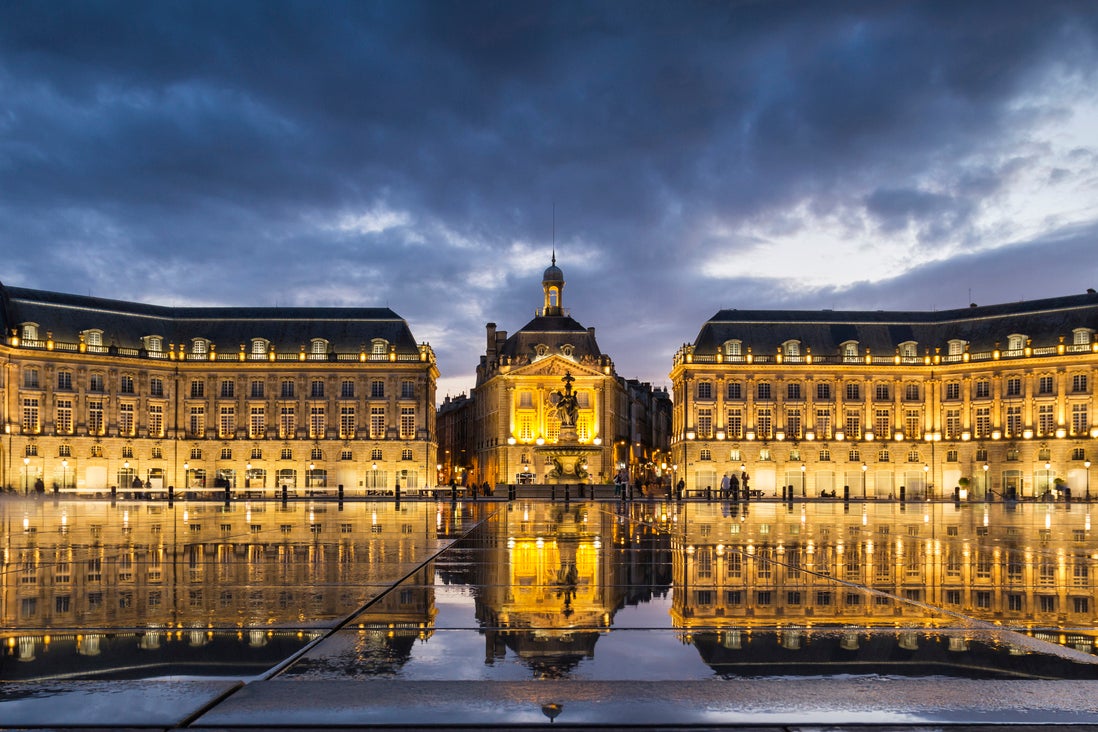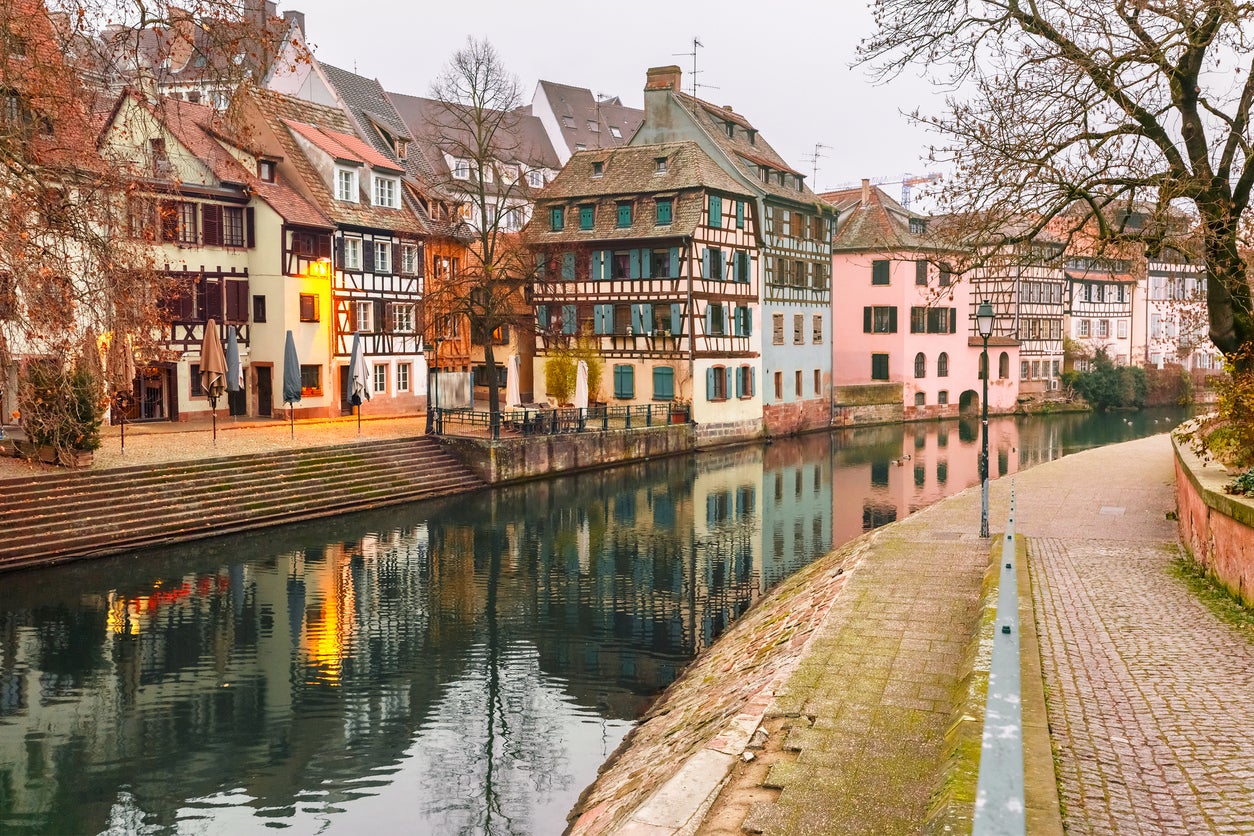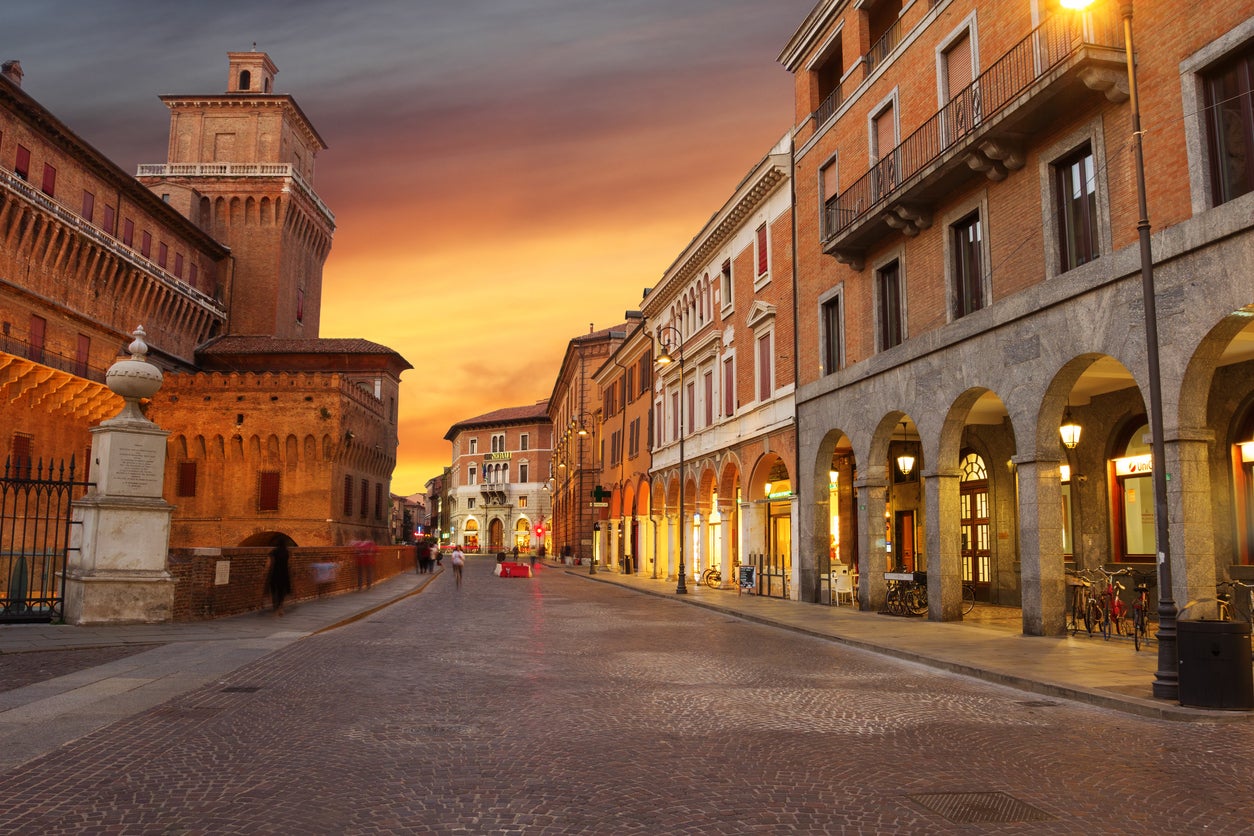
Valentine’s Day is fast approaching, and what could be more romantic than taking your beloved on a European city break? But this year, forget the hearts and flowers heavyweights – opt instead for an under-the-radar alternative for better value, fewer tourists and just as much opportunity to hold hands and stare lovingly into each other’s eyes...
Swap Paris for Bordeaux
Frequently voted top dog in lists of the world’s most romantic cities, Paris attracts more than its fair share of lovebirds. But those looking for good food and wine, beautiful French architecture and a chance to practise the langage de l’amour could look further south for all the romance with less of the cliché.
Bordeaux offers a compact city centre, pedestrianised boulevards and wonderful restored neoclassical architecture at every turn.
Swap the Eiffel Tower for the miroir-d’eau, the world’s largest reflecting pool, which mirrors the magnificent Palais-de-la-Bourse opposite.
Take advantage of the city’s illustrious wine heritage with a visit to the world’s best wine museum, Cité du Vin, which opened in 2016 and is housed in an innovative, decanter-shaped building. And forget Notre Dame – Bordeaux’s Cathedral of Saint Andrew is a Gothic masterpiece in its own right.

Swap Prague for Budapest
Plentiful beer, architecture that roams from Gothic to baroque to art nouveau and a maze of pretty, cobbled streets – Prague has all you need for a romantic break. And apparently, for a less-romantic stag do. Escape the morph-suit-clad crowds this Valentine’s Day by plumping for the Hungarian capital instead, which boasts plenty of its own superb architectural styles to admire and lively romkocsmá (ruin bars) built in abandoned buildings, shops and lots. And for an even steamier getaway, visitors can indulge in a soak in Budapest’s famous hot springs.

Swap Bruges for Strasbourg
Bruge’s pretty market squares, cobbled streets and soaring church spires add up to a medieval fairy tale; but these attractions also draw in huge numbers of tourists. Find a quieter yet equally charming base in Strasbourg – the underappreciated Alsace gem on the French-German border that combines the best of both. Half-timbered, colourful old buildings lining winding streets give their own take on fairy-tale style, while cosy winstubs (traditional Alsatian taverns) welcome travellers for food and drink. Get a cultural fix at the 18th-century Palais Rohan, dubbed a “Versailles in miniature”, or go more modern with a visit to Musée d’Art Moderne et Contemporain, which features works by Kandinsky and Picasso.

Swap Florence for Ferrara
Florence may be the cradle of the Renaissance, but the reasons tourists flock there – world-class art, architecture, food and drink – can be found elsewhere in Italy. The oft overlooked city of Ferrara, plonked between Venice and Bologna, is a serious Renaissance art destination, plus a Unesco World Heritage Site to boot. Its proximity to better-known cities makes it a relatively quiet option, with less competition to see the signature Castello Estense, a giant castle complete with moat in the city centre, and various palazzos boasting fine frescoes and examples of Renaissance art. Food-wise, there are plenty of trattorias serving up traditional Ferrara dishes, such as cappellacci di zucca (pasta filled with pumpkin, parmigiano cheese and nutmeg) and pasticcio di maccheroni (a sweet-crust pie with a macaroni, béchamel, dried mushroom and truffle filling).

Swap Venice for Annecy
Annecy in south-east France is known as the Venice of the Alps – and for good reason. This medieval canal city has several waterways running through the centre, fed by the neighbouring Lake Annecy, set to a backdrop of snow-capped mountain peaks. It also boasts a charming old town with cobbled streets and pastel houses; the Château d’Annecy, which looks like it fell straight out of a storybook, looms large, and is now home to a museum. The city rivals Venice for picturesque beauty and has the additional boon of the glorious lake, which visitors can explore on pleasure boats or on foot, following the trails around the water’s edge.







